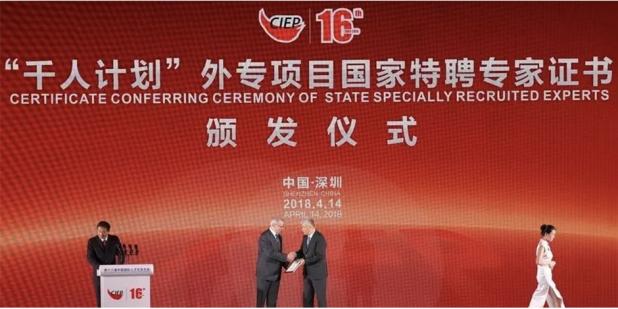Join us for a free one-day workshop for educators at the Japanese American National Museum, hosted by the USC U.S.-China Institute and the National Consortium for Teaching about Asia. This workshop will include a guided tour of the beloved exhibition Common Ground: The Heart of Community, slated to close permanently in January 2025. Following the tour, learn strategies for engaging students in the primary source artifacts, images, and documents found in JANM’s vast collection and discover classroom-ready resources to support teaching and learning about the Japanese American experience.
Webinar: America Challenges China’s National Talent Programs
The USC U.S.-China Institute presents a webinar with David Zweig to look at how tensions between the United States and China have impacted scientific collaboration and research.

China’s eager to recruit and retain talent. It has seen many of its most able scholars find homes and produce path-breaking work in other countries. In recent years, it’s permitted recruited scholars to be based in China on a part-time basis. This has led to tensions with the United States, which wants research funded in full or in part by American sources to benefit itself. Some scholars have been accused of violating U.S. laws on double-dipping and disclosure. Collaborative U.S.-China research is under a cloud, which doesn’t benefit scientific advance for the U.S. or China.
 David Zweig is professor emeritus at Hong Kong University of Science and Technology, where he began teaching in 1996, heading the university’s Center on China’s Transnational Relations for 15 years. He is one of the foremost scholars on China’s talent recruitment and retention efforts and on China’s globalization efforts. A prolific writer, he’s authored or edited 10 books and many articles. In addition to articles in academic journals, Zweig’s publishes frequently in wide-circulation newspapers such as the South China Morning Post, including recent op-eds on the evolving situation in Hong Kong. Zweig remains based in Hong Kong and now heads Transnational China Consulting. He previously spoke at USC on the program and, together with Siqin Kang, he recently published a paper on America’s response to the Thousand Talents Program.
David Zweig is professor emeritus at Hong Kong University of Science and Technology, where he began teaching in 1996, heading the university’s Center on China’s Transnational Relations for 15 years. He is one of the foremost scholars on China’s talent recruitment and retention efforts and on China’s globalization efforts. A prolific writer, he’s authored or edited 10 books and many articles. In addition to articles in academic journals, Zweig’s publishes frequently in wide-circulation newspapers such as the South China Morning Post, including recent op-eds on the evolving situation in Hong Kong. Zweig remains based in Hong Kong and now heads Transnational China Consulting. He previously spoke at USC on the program and, together with Siqin Kang, he recently published a paper on America’s response to the Thousand Talents Program.
Featured Articles
Please join us for the Grad Mixer! Hosted by USC Annenberg Office of International Affairs, Enjoy food, drink and conversation with fellow students across USC Annenberg. Graduate students from any field are welcome to join, so it is a great opportunity to meet fellow students with IR/foreign policy-related research topics and interests.
RSVP link: https://forms.gle/1zer188RE9dCS6Ho6
Events
Hosted by USC Annenberg Office of International Affairs, enjoy food, drink and conversation with fellow international students.
Join us for an in-person conversation on Thursday, November 7th at 4pm with author David M. Lampton as he discusses his new book, Living U.S.-China Relations: From Cold War to Cold War. The book examines the history of U.S.-China relations across eight U.S. presidential administrations.




